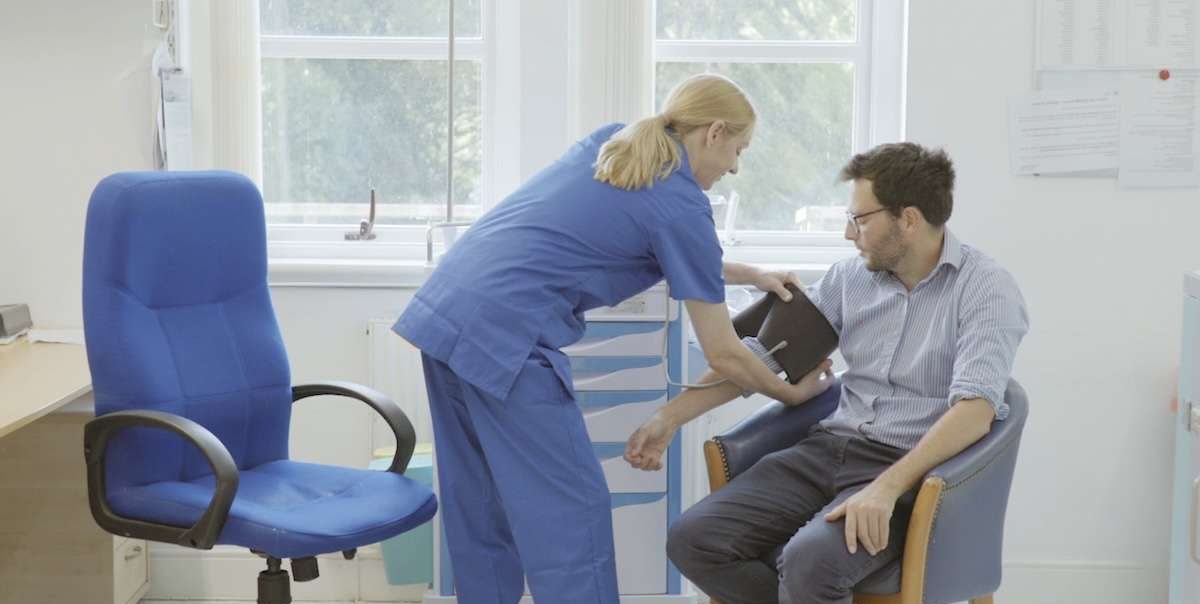
Residential Prescription Drug Detox Treatment
Many people begin taking prescription medication to manage pain, anxiety, sleep disorders or other health concerns, potentially finding themselves psychologically or physically dependent over time. At Castle Craig, we offer medically managed detox in a calm, residential setting designed to support safe withdrawal from prescription drugs. Alongside 28-day and longer-term rehab treatment, we provide a therapeutic environment, evidence-based care and support from an experienced multidisciplinary team.
This article explains what to expect during prescription drug detox, including common symptoms, stages of withdrawal and how long prescribed medication detox typically takes. To speak with our admissions team and learn more about our medical detox treatment for prescription drug addiction, call 01721 546 263 today.
What is Prescription Medication?
Prescription medication refers to drugs that are legally provided by a doctor or healthcare professional to treat specific physical or mental health conditions. Prescription drugs can help manage a wide range of symptoms, including pain, anxiety, depression and sleep disorders, and are typically stronger than over-the-counter tablets.
While prescription medications are often essential for recovery or symptom management, some carry a risk of dependency, especially when taken long-term or outside of medical advice. Over time, people may find themselves needing higher doses or struggling to stop, which can lead to physical and psychological prescription drug addiction.
Common Types of Medication That Could Cause Dependency
Prescription painkillers, sleeping pills, anti-anxiety medication and antidepressants are among the most common types of prescription drugs that can lead to dependency. Many of these medications act on the central nervous system, which can result in tolerance and withdrawal symptoms if use is reduced or stopped suddenly.
Other types of prescription drugs linked to addiction include muscle relaxants, sedatives, tranquillisers, ADHD medications (particularly stimulants) and mood stabilisers. Dependency on prescription medication can develop gradually, often without the person realising, and is sometimes driven by increasing doses or using medication to cope with emotional distress.
Common Medications That Could Lead to Addiction
Certain individual prescription medications carry a particularly high risk of addiction, especially when used long-term or not as directed. Opioid painkillers like codeine, tramadol, oxycodone, hydrocodone and co-codamol are frequently associated with dependency due to their strong pain-relieving and euphoric effects, which can lead to physical tolerance
Benzodiazepines such as diazepam (Valium), lorazepam (Ativan), alprazolam (Xanax) and temazepam are also commonly misused because they reduce anxiety and promote calm, but can lead to strong psychological and physical dependence. Other addictive medications include Z-drugs like zopiclone and zolpidem, GABA analogues such as pregabalin and gabapentin, and stimulants like methylphenidate or amphetamines, which are often prescribed for ADHD. These drugs affect brain chemistry in ways that can make stopping use extremely difficult without support.

Start Your Recovery at a Residential Rehab Today
What is a Medically Managed Prescription Drug Detox?
A medically managed prescription drug detox is a structured, clinical process designed to safely help someone reduce or stop their use of addictive medications. This type of detox is led by medical professionals who can monitor symptoms and use appropriate treatments to ease withdrawal.
Unlike trying to stop abruptly at home, a medically managed detox offers a safer and more stable environment. Treatments are adapted to the individual’s physical and psychological needs, and may involve a gradual reduction plan and the use of medication to help control symptoms and prevent complications.
Difference Between Medically Managed Prescription Drug Detox and Medically Supervised Detox
The main difference lies in the intensity and level of clinical care. A medically managed prescription drug detox involves round-the-clock input from doctors and nurses, with ongoing adjustments to the detox plan based on the patient’s progress.
In contrast, a medically supervised detox typically involves less continuous medical involvement. While still safe and supportive, it may rely more on routine check-ins rather than active day-to-day medical management. The right level of care depends on the person’s health, type of medication and severity of addiction.
Free Medication Dependency Evaluation
Castle Craig offers free drug addiction assessments for those struggling with prescription medication use as part of our admissions process. This initial evaluation helps our team understand your specific situation, including the type of medication used, duration and any physical or psychological symptoms you’re experiencing.
Following this, we can develop a personalised residential treatment plan based on your individual needs. We understand that every case of prescription medication addiction is different and complex, which is why we customise each detox and rehab plan to support safe withdrawal and long-term recovery. Call us today on 01721 546 263 to learn more about our patient-centred approach to prescription drug detox.
Free Prescription Drug Addiction Assessment
Taking the first step and asking for help can feel daunting, but our team is here to assist you.
Benefits of Inpatient Residential Prescription and Medication Drug Detox and Withdrawal Treatment
Inpatient detox offers numerous benefits for those struggling with prescription medication drug dependency. It provides a controlled, supportive environment that can significantly reduce withdrawal risks and support physical and psychological recovery. Detoxing in a residential setting helps manage complex symptoms safely and constructively.
The following sections explore key advantages such as round-the-clock medical support, personalised treatment plans and specialised care for various types of medication drug addiction. Each benefit plays an important role in promoting lasting recovery and well-being.
-
24/7 Medical Support for Prescription Drug Detox
Access to continuous medical support is vital during medically managed prescription drug detox. Constant monitoring allows early detection of detox symptoms and immediate care to reduce discomfort and prevent complications. This 24/7 supervision offers safety and reassurance throughout the withdrawal timeline.
Medically managed prescription drug detox includes tailored interventions during withdrawal symptoms, which can vary widely depending on the specific medications involved. Consistent professional support helps patients stay safe and comfortable throughout the process.
-
Safe Management of Pain Medication and Pill Addiction
Managing pain medication and prescription pill addiction requires expert care to avoid complications and reduce the risks associated with stopping. Residential detox programmes offer structured medical oversight to guide patients safely through each phase.
Castle Craig provides specialised protocols for safely managing withdrawal from opioid painkillers and other prescription medications. Our multidisciplinary team supports patients in gradually reducing dependency while also addressing physical and psychological symptoms.
-
Reduced Risk of Relapse from Sleeping Pill and Sedative Misuse
Detoxing from sleeping pills and sedatives can involve rebound insomnia and other symptoms that raise relapse risk. Residential detox clinics in the UK can create a stabilising environment that minimises triggers during this sensitive stage.
Detoxing from prescription drug dependency in a medically supported setting significantly lowers the chance of relapse. The structured environment during detox helps patients maintain focus on recovery and gain a clearer understanding of their addiction, reducing the temptation to misuse sleeping pills or sedatives again.
-
Support for ADHD, Anxiety and Depression Medication Addiction
Withdrawal from ADHD, anxiety or depression medication requires specialised care to address both physical detox symptoms and underlying mental health conditions. Each person’s treatment plan focuses on safe medication tapering combined with therapeutic support.
Castle Craig’s experienced team offers comprehensive treatment for patients with addiction linked to mental health medications. Our residential plans for people suffering from prescription drug addiction include both detox and psychological care.
-
Supervised Detox from Opioid and Prescription Pill Misuse
Supervised detox helps patients safely manage intense withdrawal symptoms often associated with opioid painkillers and other prescription pill misuse. Medical oversight minimises health risks and aids symptom control.
Medically managed prescription drug detox centres deliver essential round-the-clock care for those detoxing from opioids and prescription painkillers. Professional guidance reduces withdrawal severity and supports patient health throughout the process.
-
Personalised Plans for Complex Prescription Drug Dependency
Each prescription drug dependency case is unique, requiring personalised detox and rehabilitation strategies. Factors such as medication type, usage duration and co-existing health issues should influence treatment plans.
Castle Craig develops customised residential detox plans designed to meet the complex needs of patients facing prescription drug dependency. We strongly believe that individualised care improves detox safety and increases chances for sustainable abstinence.
-
Mental Health Care During Prescription Withdrawal
Mental health symptoms like anxiety, depression and mood swings often occur during prescription drug withdrawal. Combining mental health support with medical detox is important for comprehensive rehab treatment.
Compassionate mental health care during prescription drug detox can improve withdrawal outcomes and patient well-being. Addressing both physical and psychological symptoms enhances the detox experience and allows individuals to feel comfortable and reassured.
-
Aftercare Planning to Prevent Relapse and Reuse
Aftercare is a key part of recovery following prescription drug detox. Structured support and relapse prevention strategies help maintain sobriety and guide patients through ongoing healing when they return home.
Castle Craig offers thorough continuing care services for each patient after detox and rehab treatment. You will also have access to our Recovery Club and yearly reunions to celebrate your ongoing progress.
Private Medically Managed Prescription Drug Detox Centre Near Me
Locating a private, medically managed prescription drug detox facility nearby can support a safer, more comfortable withdrawal process for you or someone you care about. Dedicated prescription drug rehab centres offer personalised care designed to manage symptoms effectively while providing a supportive environment. Below, learn how to contact prescription medicine treatment clinics and tips for selecting the best option for you.

Contact Castle Craig Prescribed Drug Detox Centre
Castle Craig is located in West Linton, Edinburgh, United Kingdom, EH46 7DH. Our woodland grounds and Georgian estate offer a peaceful, private location for focused recovery, surrounded by natural beauty that supports well-being and healing during detox and rehabilitation.
Find Us
01721 546 263
info@castlecraig.co.uk
Castle Craig,
West Linton, Edinburgh, United Kingdom, EH46 7DH
For more information about our residential treatment for drug and prescription substance addiction, please call 01721 546 263 or fill out our online form. Our team is ready to help you explore your options for safe, medically managed detox and longer-term rehab care.
-
How to Find a Private Medication Drug Detox Centre Near You
Finding the right inpatient detox centre for medication or prescription drug dependency can feel overwhelming, but there are clear ways to begin. It’s important to consider your specific needs, location and whether the clinic offers medically managed detox for the substance you’ve been using.
- Search for “Private Prescription Drug Detox Near Me” or Include Your Location: Examples could include “sleeping pill addiction detox centre near me,” “prescription painkiller addiction detox clinic in UK,” or “mental health medication misuse detox Scotland.”
- Look for 24/7 Medical Support While in Treatment: Continuous medical care at prescription drug detox centres in your area will help manage withdrawal symptoms safely and effectively.
- Read Detox Clinic Reviews and Testimonials: Insights from past patients can indicate the quality of the detox and prescription drug rehab treatments offered.
- Ask About Medical Detox Support: Make sure the facility provides appropriate clinical oversight tailored to prescription medication withdrawal, including for the specific drug you are using.
- Enquire About Costs and Bed Availabilities: Clarify financial details and ways to pay, as well as confirming there are spaces available for your treatment period.
- Check if They Accept Health Insurance: Find out if your insurance provider covers prescription drug detox services at your chosen centre to reduce out-of-pocket expenses.
Find Out About Our Drug Detox Treatment
At Castle Craig, we provide a complimentary assessment to better understand your experience with prescription or medication drug addiction. This helps us build a clear picture of your needs and the best path forward for long-term sobriety.
From this assessment, we design both medically managed detox plans and highly tailored recovery strategies for each patient. Our aim is to support you in regaining control and moving confidently towards a healthier, addiction-free life – call us on 01721 546 263 today.
Signs, Symptoms and Effects of Prescription Drug Withdrawal & Detoxification
Withdrawal from prescription drugs can trigger a variety of signs and symptoms. The experience varies depending on the medication and individual factors. Below are just a few of the common withdrawal effects, though symptoms may differ for each person.
-
Early Signs of Medication Drug Withdrawal
Early prescription drug withdrawal symptoms typically begin within hours to a day after stopping the drug in question. These initial signs can signal the body’s response to the absence of the substance.
- Increased anxiety or restlessness: Heightened feelings of unease or nervous energy often emerge as the body adjusts to the lack of medication.
- Difficulty sleeping or frequent waking: Insomnia or interrupted sleep patterns are common early signs as withdrawal disrupts normal rest.
- Irritability and mood swings: Emotional volatility may increase, with rapid changes in mood and frustration levels.
- Headaches or body tension: Physical discomfort, such as headaches and muscle tension, often accompanies early prescribed medicine withdrawal stages.
- Cravings for the drug or medication: Strong urges to use the medication can develop as the body and mind seek relief.
-
Moderate to Severe Symptoms of Prescription Medication Detox
Moderate to severe withdrawal symptoms usually develop within the first few days after stopping prescribed medication. These symptoms can be physically intense and may require medical attention to manage safely.
- Nausea, vomiting, or abdominal pain: Digestive distress often occurs, causing discomfort and difficulty keeping food or fluids down.
- Rapid heartbeat or high blood pressure: The body may react with increased heart rate and elevated blood pressure as part of withdrawal stress.
- Muscle aches, tremors or chills: Physical pain, uncontrollable shaking and chills frequently accompany the body’s adjustment to the absence of medication.
- Profuse sweating or hot flashes: Sudden, intense sweating or heat sensations reflect the nervous system’s heightened activity during opioid or benzodiazepine withdrawal.
- Seizures or risk of convulsions: In some cases, withdrawal can trigger seizures, making medical supervision important for safety.
-
Psychological Effects of Prescription Substance Withdrawal
Psychological symptoms often emerge alongside physical withdrawal and can last for several days or weeks. Psychological effects of stopping prescription drugs impact mood, perception and emotional stability, making recovery challenging.
- Depression or persistent low mood: Feelings of sadness or hopelessness can intensify, affecting motivation and daily functioning.
- Panic attacks or extreme anxiety: Sudden bouts of overwhelming fear or nervousness frequently occur during withdrawal.
- Hallucinations or distorted thinking: Some may experience sensory disturbances or confusion as the brain adjusts to the absence of a prescription drug.
- Paranoia or heightened sensitivity: Increased mistrust or overreaction to stimuli can arise during detox.
- Emotional numbness or detachment: A sense of disconnection from feelings or surroundings is common in opioid, benzodiazepine or other prescription drug withdrawal stages.
-
Physical Symptoms During Prescription Substance Detox
Physical symptoms typically appear within the first few days of prescription substance detox and can vary in intensity. The body undergoes significant changes as it adjusts to the absence of the medication, leading to a range of visible signs.
- Shaking or uncontrollable tremors: Involuntary muscle movements or trembling often occur as the nervous system reacts to withdrawal.
- Gastrointestinal upset or diarrhoea: Digestive disturbances are common, causing discomfort and frequent loose stools.
- Dilated pupils or blurred vision: Changes in pupil size and visual clarity can result from nervous system disruption.
- Fatigue and physical exhaustion: Intense tiredness arises as the body expends energy to heal and rebalance itself.
- Poor appetite and sudden weight loss: Reduced hunger and unintentional weight loss frequently accompany prescribed drug detoxification.
-
Long-Term Effects Without Medication and Drug Detox Support
Without adequate detox support, the effects of prescription drug withdrawal can worsen over weeks and months. Long-term complications often impact both physical health and emotional well-being, making recovery more difficult.
- Ongoing mental health deterioration: Untreated withdrawal can lead to worsening anxiety, depression and emotional instability over time.
- Increased risk of overdose relapse: Without support, returning to prescription drug use raises the chance of accidental overdose.
- Heart or liver damage: Abrupt changes to medication without professional guidance can cause lasting harm to vital organs like the heart and liver.
- Strained relationships and social isolation: Withdrawal challenges and cravings may disrupt family and social connections, leading to isolation.
- Chronic insomnia and cognitive decline: Long-term symptoms can include persistent sleep problems and impair memory or concentration.

Medications Used for Prescription and Medication Drug Detoxification
Medications may be used during prescription drug detox to reduce withdrawal symptoms, manage discomfort and support patient stability. However, not everyone will require medication – this depends on the type of drug, severity of dependence and individual health needs. Below are some commonly prescribed medications, all of which must be carefully administered under medical supervision.
- Methadone: Used primarily for opioid withdrawal, methadone can help reduce cravings and manage symptoms. It carries a risk of dependence and must only be taken in a controlled medical environment.
- Buprenorphine (Subutex, Suboxone): Buprenorphine may reduce withdrawal symptoms and opioid cravings. Suboxone contains naloxone to deter misuse. These medications require close monitoring to avoid misuse or adverse effects.
- Clonidine: Clonidine is a non-opioid medication that is used to reduce anxiety, agitation and high blood pressure during withdrawal. It is not addictive but needs dosage monitoring for blood pressure control.
- Diazepam (Valium): Diazepam is sometimes used for benzodiazepine withdrawal. Due to its potential for dependency, it should be given in tapered doses and under strict medical supervision.
- Lorazepam (Ativan): Used for anxiety and agitation during withdrawal, lorazepam must be carefully managed as it is a short-acting benzodiazepine with a risk of dependency if used long-term or without direction.
- Naltrexone: Naltrexone blocks the euphoric effects of opioids. It is not suitable during early detox, but can be introduced once detox is complete to support relapse prevention.
- Gabapentin: Gabapentin may help with nerve pain, anxiety and seizures during prescription drug withdrawal. While not considered highly addictive, it should still be used under medical guidance due to potential misuse.
- SSRIs (Antidepressants): SSRIs may be prescribed to support patients with underlying depression or anxiety during detox. These medications take time to work and must be managed as part of a broader plan.
- Ondansetron (anti-nausea): Ondansetron can help relieve nausea and vomiting, especially in the early stages of withdrawal. It is non-addictive and generally well-tolerated when used for short-term symptom relief.
- Non-addictive sleep aids: Sleep disruption is common during prescribed drug detox. Non-addictive sleep aids such as melatonin or sedating antihistamines may be used to support rest without the risks associated with sedatives.
At Castle Craig, our approach to the use of detox medications is conducted with the highest level of responsibility so that they do not result in a new dependency. We understand that this may be a concern for some patients, and we are here to assure you that detox medicines are prescribed only when clinically necessary and are closely managed under the care of our Consultant Psychiatrist and trained medical staff.
Our goal is to alleviate withdrawal symptoms safely while focusing on your overall recovery and the goal of abstinence. By using evidence-based protocols and regularly assessing your progress, we only use detox medications as a short-term tool to support your transition into sobriety, always prioritising your long-term health, well-being and abstinence.

Contact Castle Craig Today
You don’t have to face prescription drug addiction alone. At Castle Craig, we understand how complex and personal recovery can be, and we will be with you every step of the way. From your first enquiry to medically managed detox and beyond, our team is here to support your journey towards life-changing, fulfilling abstinence. Call us today on 01721 546 263 to speak to us about your situation. Building your new future can start today.
Does Health Insurance Cover Prescription Pill Detoxification Treatment?
Yes, health insurance can cover prescription pill detoxification treatment, but this depends on your policy, insurer and whether they approve your treatment in advance. In the UK, authorisation must usually be confirmed by your insurer before you can access treatment at a detox facility.
If your cover is approved and authorised for treatment at Castle Craig, we do accept private health and medical insurance. Our admissions team can guide you through the insurance admissions process and liaise with your provider during your prescription drug detox treatment if needed.
How Much Does Residential Medication Addiction Drug Detox Cost?
Residential medication drug detox in the UK typically costs between £1,000 and £6,000 for a standalone 7 to 10 day detox. However, detox is usually just the first step and should be followed by a rehab treatment programme. Within residential settings, costs range from £650 to £1,500 per day or £4,500 to £10,000 per week.
Prescription substance detox pricing can vary based on the severity of the addiction, medical needs and the length of your stay. For more information about our all-inclusive detox and rehab treatment options and to discuss availability, feel free to call us on 01721 546 263 today.
Prescription Medication Detox Timeline and How Long It Takes
Prescription and medication drug detox is often the first stage of a longer recovery journey. Detox helps the body begin to adjust without the drug, but it’s only one part of comprehensive treatment. Below, we outline a typical medication drug detox timeline, but a full prescription substance rehab programme may be advised after your initial assessment to support long-term recovery.
-
Stage 1: Early Withdrawal Symptoms (6–12 Hours After Last Dose)
Early signs can begin just hours after stopping prescribed medication use, depending on the type of drug and how long you’ve been taking it. The first symptoms often include increased anxiety, restlessness, cravings and trouble sleeping. These can be difficult to manage alone, especially for those detoxing from painkiller dependence.
For many, this phase is the first indication of how long a detox from medication drug use may take. Medical support in the early stages can reduce the intensity of symptoms and the risk of early relapse, particularly in cases involving opioids or benzodiazepines.
-
SStage 2: Peak Medication Drug Withdrawal Symptoms (24–72 Hours)
The peak period is usually the most intense part of the prescription drug detox timeline. Physical symptoms like nausea, headaches, tremors, sweating and flu-like sensations may be at their worst. Psychological distress, such as irritability and panic, is also common.
People detoxing from medications like painkillers, sleeping pills or anxiety medications often require 24-hour care at this stage. Being in a medically managed detox centre allows for symptom relief, careful observation and emotional support.
-
Stage 3: Subsiding Symptoms and Stabilisation (3–7 Days)
Once the peak symptoms of prescription drug withdrawal have passed, most people begin to stabilise. Physical signs can begin to lessen, although some fatigue, low mood and cravings may still linger. This important point in recovery is when the body and mind may start to feel clearer.
If you’re wondering how long prescription drug withdrawals last, most acute symptoms resolve within a week, but emotional and psychological recovery continues much longer. Continued inpatient rehab support is recommended to help you transition from detox to rehabilitation safely and sustainably.

Related Guides on Medically Managed Residential Detox
Detox Centre | Inpatient Detox | Alcohol | Drugs | Cocaine | Heroin | Crystal Meth | Valium | Tramadol | Benzodiazepines | Xanax | Codeine | Opioid | Ecstasy | Morphine | Amphetamine | Cannabis
Inpatient Medication Drug Detox Treatment Admissions Process
The admissions process for medication or prescription drug detox at Castle Craig is clear, confidential and designed to help you feel supported from the very first step. We aim to make the transition into care as smooth and reassuring as possible.
- Enquire About Medication or Painkiller Detox Admissions: You can contact our admissions team directly to discuss concerns about prescription pill use and ask any questions about residential detox treatment.
- Clinical Assessment for Prescription Pill or Medicine Use: A medical and psychological assessment helps us understand your current situation, substance use history and any concerns about withdrawal symptoms or health issues.
- Review Painkiller History and Mental Health Factors: We’ll look into your specific medication use, past or current mental health conditions and how long you’ve been dependent on the prescription drug.
- Confirm Detox Admission Date and Payment Details: Once you’re clinically approved for admission, we’ll agree on a start date for prescription drug detox and explain all costs and payment options in full.
- Arrive for Medical Screening and Intake Process: Upon arrival at Castle Craig, our team will carry out a full health check and guide you through your orientation into the detox process.
- Begin Medically Managed Detox for Pills or Medication: Your detox plan begins under 24/7 medical care with support tailored to your individual symptoms, needs and long-term treatment goals.
Questions About Detox for Prescription Drugs?
Contact us to discuss your treatment needs with a licensed clinician.
Find Out About Our Residential Detox Treatment
Castle Craig understands how physically exhausting and emotionally complex prescription drug addiction can be. Whether you’re struggling with pain medication, sleeping pills or anxiety tablets, we know how difficult it can feel to stop and how important safe, professional care is during detox.
We treat the whole person, not just the symptoms. Our residential prescription drug detox offers medical care, psychological support and space to begin healing. Call us on 01721 546 263 to speak confidentially about treatment options or to arrange an initial assessment.
Free & Confidential Assessment
Compassionate, expertly delivered evidence-based practices and a patient-centred approach are at the heart of our treatment model. Request a call-back from one of our professionals on any day of the week.
-
Statistics on Addictive Prescription and Medication Substances in the UK
- In a crime survey for England and Wales, it was found that 5.4 % of adults aged 16 to 59 years had misused a prescription-only painkiller not prescribed to them.
- In 2021/22, 67.7 million items for dependency-forming medicines were prescribed in England, a 0.13% decrease from 2015/16.
- In 2023, it was reported that GPs and pharmacists have helped cut opioid prescriptions in England by 450,000 in under four years, as part of a new action plan to crack down on the overuse of potentially addictive medicines.
- Opioid drugs were the most prescribed dependency-forming medications in England in 2021/22, with 39.6 million items costing £307 million.
- In 2017 to 2018, 5.6 million adults in England (13% of the adult population) received and had dispensed opioid pain medicines.